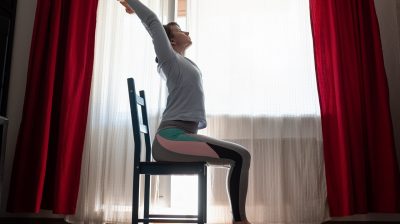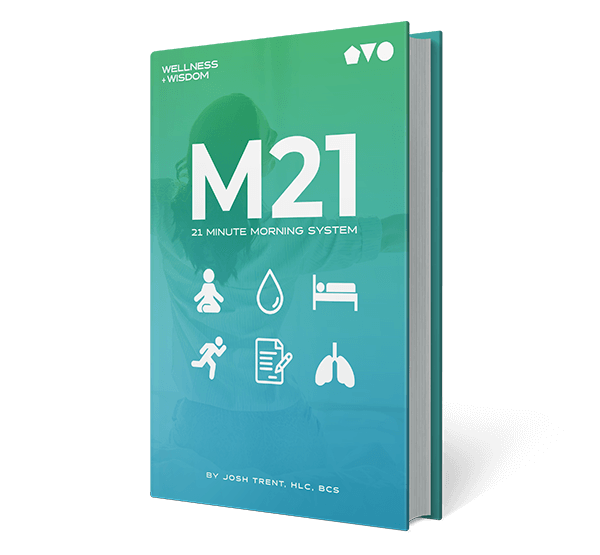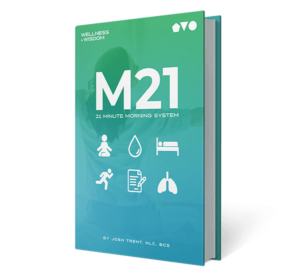Welcome to the world of rehabilitation in the UK. With addiction and substance abuse on the rise, it's important to understand how rehab works and its impact on individuals and society. If you or a loved one are struggling with addiction, this article will provide valuable insights into the rehabilitation process to help you make informed decisions. Many effective addiction rehab uk programs are tailored to meet the specific needs of each individual.
Table of Contents
What is Rehabilitation?
Rehabilitation is a process that helps individuals recover from physical, mental, or substance abuse issues. It involves various therapies, medical treatments, and support systems to promote healing and improve overall well-being. Rehabilitation aims to restore individuals to their optimal level of functioning and enhance their quality of life.
Why Do People Go to Rehabilitation?
Rehabilitation, or rehab, is an essential process for individuals who want to overcome different difficulties and enhance their overall health. In this section, we will talk about the primary reasons why people opt for rehabilitation. From recovering from addiction to receiving mental health treatment and physical rehabilitation, we will explore the various areas in which rehab can offer assistance and enable individuals to attain a healthier and more joyful life.
1. Addiction Recovery
- Recognise the problem and admit the need for help.
- Seek out professional assistance from a rehab centre.
- Undergo a thorough assessment to determine the most appropriate treatment plan.
- Detoxification: Rid the body of addictive substances under medical supervision.
- Therapy and counselling: Engage in individual and group therapy sessions to address the root causes of addiction.
- Educate and develop life skills: Learn coping mechanisms and strategies to prevent relapse.
- Participate in aftercare programmes and support groups for ongoing recovery.
Pro-tip: Surround yourself with a strong support system and stay committed to your recovery journey.
2. Mental Health Treatment
- Assessment: Individuals undergo a thorough evaluation to determine their mental health condition and treatment needs.
- Treatment Plan: A personalised plan is created, which may include therapy, medication, or a combination of both.
- Therapy Sessions: Various types of therapy, such as cognitive-behavioural therapy (CBT) or psychotherapy, are conducted to address specific mental health issues.
- Medication Management: If necessary, medications are prescribed and monitored to alleviate symptoms and promote mental well-being.
Pro-tip: Remember to prioritise self-care, practice coping strategies, and seek support from loved ones during and after treatment.
3. Physical Rehabilitation
Physical rehabilitation plays a vital role in helping individuals recover from injuries or medical conditions. Here are some steps involved in the process:
- Assessment: Evaluating the individual's condition and creating a personalised treatment plan.
- Physiotherapy: Engaging in exercises and therapies to improve strength, flexibility, and mobility.
- Pain Management: Utilising techniques such as medication, heat/cold therapy, or acupuncture to alleviate pain.
- Assistive Devices: Recommending and providing devices like crutches or wheelchairs to aid mobility.
- Progress Monitoring: Regularly assessing the individual's progress and adjusting the treatment plan accordingly.
What are the Different Types of Rehabilitation Programs in the UK?
The United Kingdom offers a range of rehabilitation programs for people who want to overcome addiction or other mental health problems. These programs differ in their methods and intensity, but they all aim to help individuals regain control of their lives. In this section, we will explore the various types of rehabilitation programs available in the UK, including inpatient, outpatient, and residential options. Each program has its own distinct features and advantages, so let's examine them to gain a better understanding of how rehabilitation works in the UK.
1. Inpatient Rehabilitation
- Inpatient rehabilitation is a type of rehabilitation programme where individuals reside in a treatment facility for a specific period of time.
- The programme includes:
- Medical assessment and detoxification to manage withdrawal symptoms.
- Therapy and counselling sessions to address underlying issues and develop coping mechanisms.
- Group support to foster a sense of community and shared experiences.
- Life skills training to promote independent living and prepare for reintegration into society.
2. Outpatient Rehabilitation
Outpatient rehabilitation offers flexibility and convenience for individuals seeking treatment outside of a residential facility.
- Initial assessment and evaluation of the individual's needs.
- Crafting a personalised treatment plan.
- Regular therapy sessions, such as individual counselling and group therapy.
- Education and life skills training to promote long-term recovery.
- Access to support networks and community resources.
An interesting fact: Outpatient rehabilitation is often preferred by individuals who want to continue with their daily responsibilities while receiving treatment.
3. Residential Rehabilitation
- Residential rehabilitation programmes provide 24/7 care and support in a controlled environment.
- Patients live on-site and receive intensive therapy, counselling, and medical supervision.
- Structured daily activities and routines help individuals develop healthy habits and coping mechanisms.
- Peer support and group therapy are integral parts of the residential rehabilitation experience.
- Family involvement and aftercare planning ensure a smooth transition back into society.
What Happens in Rehabilitation?
Rehabilitation is an important stage in the recovery of individuals who are dealing with addiction or substance abuse. But what exactly occurs during the rehabilitation process? In this section, we will examine the different elements of rehabilitation more closely. Starting from the initial detoxification stage to therapy and education, we will delve into the various phases that individuals experience in rehab. Lastly, we will highlight the significance of aftercare and relapse prevention in sustaining long-term sobriety.
1. Detoxification
Detoxification is a vital part of the rehabilitation process, helping people rid their bodies of harmful substances. It usually involves the following stages:
- Assessment: Medical professionals assess the person's substance use and overall health.
- Stabilization: Medications and therapies are used to reduce withdrawal symptoms and restore physical stability.
- Supportive care: Nutritional support and counseling are provided to address the person's physical and emotional needs.
- Preparation for further treatment: Detoxification lays the groundwork for ongoing rehabilitation, helping individuals transition into therapy and counseling programs.
2. Therapy and Counselling
- Therapy and counselling are essential parts of the rehabilitation process.
- Individual therapy sessions provide a secure environment to explore underlying issues and develop coping strategies.
- Group therapy fosters support and connection with others who are facing similar challenges.
- Counselling helps individuals gain insights, set goals, and maintain motivation for long-term recovery.
Fun Fact: Research has shown that therapy and counselling can significantly improve treatment outcomes and reduce the risk of relapse.
3. Education and Life Skills Training
- Education: Rehabilitation programmes in the UK provide education on various topics such as addiction, mental health, coping mechanisms, and relapse prevention.
- Life Skills Training: Individuals receive training in essential life skills like communication, problem-solving, stress management, and goal-setting.
- Vocational Training: Some programmes offer vocational training to help individuals develop job skills and increase their employability post-rehabilitation.
- Financial Management: Education on budgeting, managing debts, and financial planning equips individuals with the skills needed for financial stability.
4. Aftercare and Relapse Prevention
- Aftercare: Continued support is crucial after leaving rehabilitation.
- Relapse Prevention: Develop coping strategies to avoid triggers and prevent relapse.
- Support Groups: Joining support groups like Narcotics Anonymous or Alcoholics Anonymous.
- Therapy: Regular therapy sessions to address underlying issues and maintain emotional well-being.
- Lifestyle Changes: Adopting a healthy lifestyle through exercise, proper nutrition, and stress management.
Pro-tip: Stay connected with your support network and prioritize self-care to maintain long-term sobriety.
How Long Does Rehabilitation Take?
Rehabilitation duration varies based on individual needs and progress. Here are the key factors that determine how long rehabilitation may take:
- Severity of the condition
- Type of rehabilitation programme
- Compliance with the programme
- Overall health and fitness level
Fact: The average duration of rehabilitation for a sports injury can range from a few weeks to several months, depending on the specific injury and treatment plan.
What are the Success Rates of Rehabilitation in the UK?
The success rates of rehabilitation in the UK vary depending on individual circumstances and the type of addiction being treated. However, studies show that the overall success rate is around 50-60%, with higher success rates for those who receive ongoing support after completing a rehab programme.
True story: John, a recovering alcoholic, entered a rehabilitation programme in the UK. With the help of dedicated professionals and ongoing support, he has been sober for three years and has rebuilt his life, mending relationships and pursuing his passion for art.
How Much Does Rehabilitation Cost in the UK?
Rehabilitation costs in the UK can vary depending on several factors:
- Facility type: Private rehab centres often have higher costs compared to NHS or charity-based centres.
- Treatment duration: Longer stays can significantly increase the overall cost.
- Level of care: Intensive programmes or specialised treatments may come with higher price tags.
- Additional services: Some facilities offer amenities or therapies that can add to the cost.
If you're looking for affordable options, consider reaching out to local support groups or exploring community-based programmes.
How to Choose the Right Rehabilitation Program in the UK?
Choosing the right rehabilitation programme in the UK involves several important steps:
- Evaluate your specific needs and goals.
- Research different types of programmes, such as inpatient, outpatient, and residential.
- Consider the location and setting of the programme.
- Check if the programme offers specialised treatment for your specific addiction or condition.
- Review the qualifications and experience of the staff.
- Assess the success rates and outcomes of the programme.
- Consider the cost and insurance coverage.
Sarah, a recovering addict, chose a rehabilitation programme in the UK that offered personalised care and a comprehensive aftercare plan. With the support of the programme's dedicated staff, she successfully completed her treatment and has been sober for two years.









